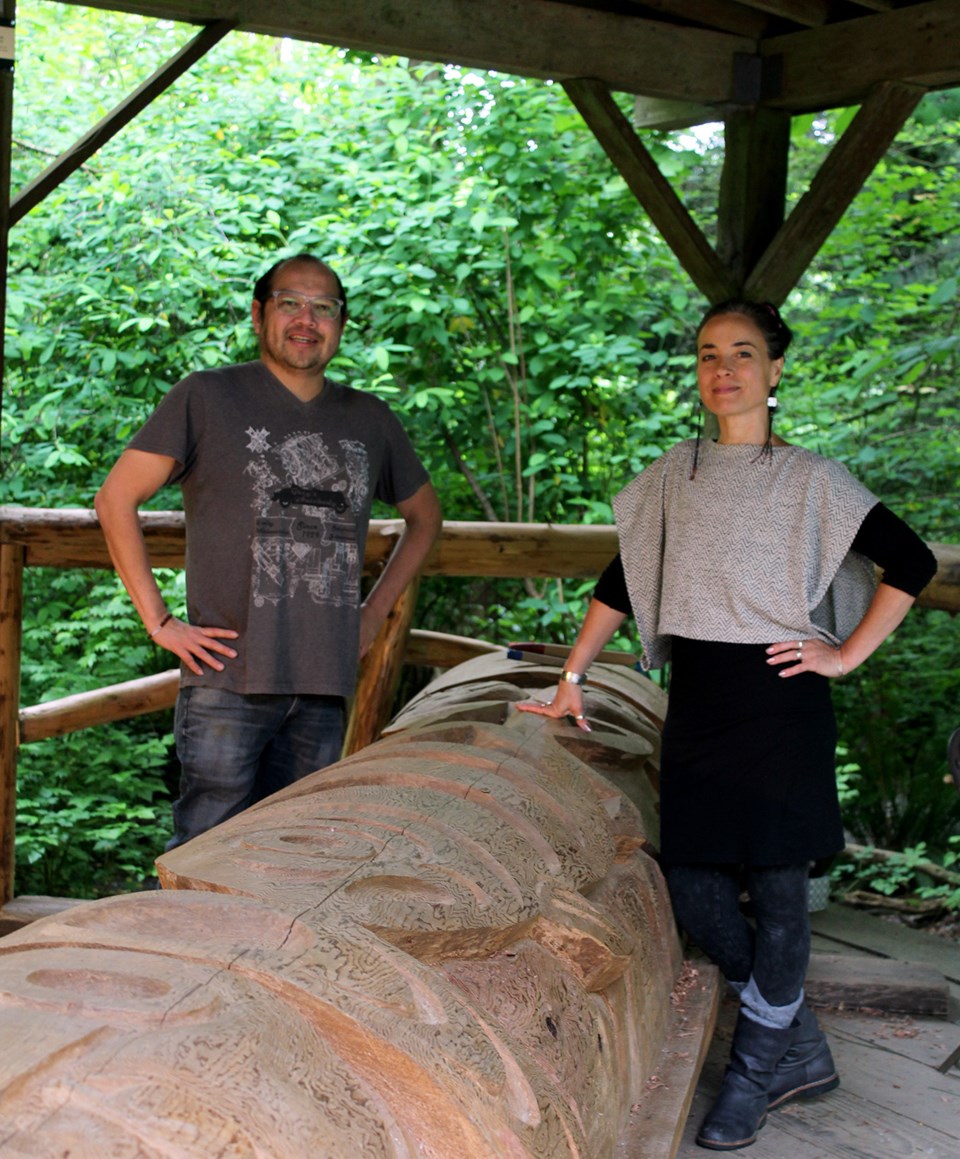Three house posts were blessed on National Indigenous People's Day (June 21) at Rocky Point Park in Port Moody.
Of what will be five posts in a few years, they each represent one of the Coast Salish Nations that once frequented the area: Kʷikʷəƛ̓əm (Kwikwetlem), xʷməθkwəy̓əm (Musqueam), Skwxwú7mesh (Squamish), Stó:lō and Səl̓ílwətaʔ/Selilwitulh (Tsleil-Waututh).
They were commissioned by local artist Tasha Faye Evans, who believes "public engagement is critical" in both resurging Indigenous values and educating residents and visitors through art.
Her work has since been recognized by organizers of an inaugural bioregion award honouring related projects across the Pacific Northwest, stretching from Alaska to California.
Evans was recently bestowed $5,000 as the first-ever culture winner of "The Edge Prize," which, according to a news release, is meant to celebrate rural, Indigenous, and traditionally marginalized practices.
"We used to have welcome figures raised along these waters so that when you travelled, you knew the stories of the land, you knew the values of the people of this land, and you knew the families who were responsible for caring for these lands and waters," said Evans.
Her project, called In the Presence of Ancestors, was a partnership with the Port Moody Ecological Society.
Evans was asked to commission master carvers to create a house post that embodies each Coast Salish Nation's values and sacred responsibilities.
The posts were raised along the Shoreline Trail, meant to act as a "life-long" arts and culture exhibition for those that walk along the 3.5-km route.
The first house post was from Tsleil Waututh artist Zachary George, known as "Grandmother’s Prayer," installed close to the Boathouse restaurant.
The second was Kwantlen member Brandon Gabriel’s "Spirit of Kwikwetlem" near the park playground.
Chrystal Sparrow carved the third, a Musqueam house post by Old Orchard Park that tells the story of women weaving.
The five-fold circle will be complete with Xwalacktun OBC's house post to represent the Squamish Nation presence, while Damian George is honouring the Katzie First Nation.
Evans' entry was selected out of 130 that were submitted to The Edge Prize's inaugural ballot.
"It's in the edges where off-grid solar originated; where permaculture and hydroponics developed; where microcredit was invented; compounds for cancer treatment found; and where many other foundational innovations began," said prize co-founder Edward West.
"We're celebrating this rich creativity and resilience, and supporting further ideations and collaborations."
Other Edge Prize categories, in addition to culture, include food and agriculture, ecosystem restoration, education, community resilience, innovation and technology, community development and finance, storytelling and knowledge, systems and governance, and youth engagement.
For more information, you can visit the awards' website.



